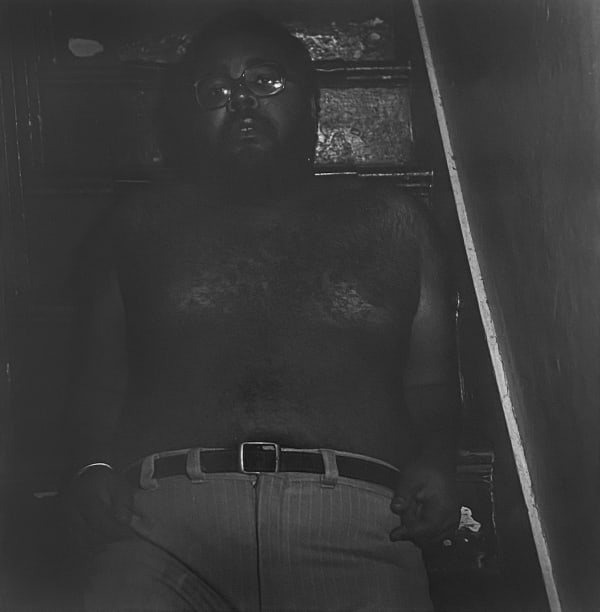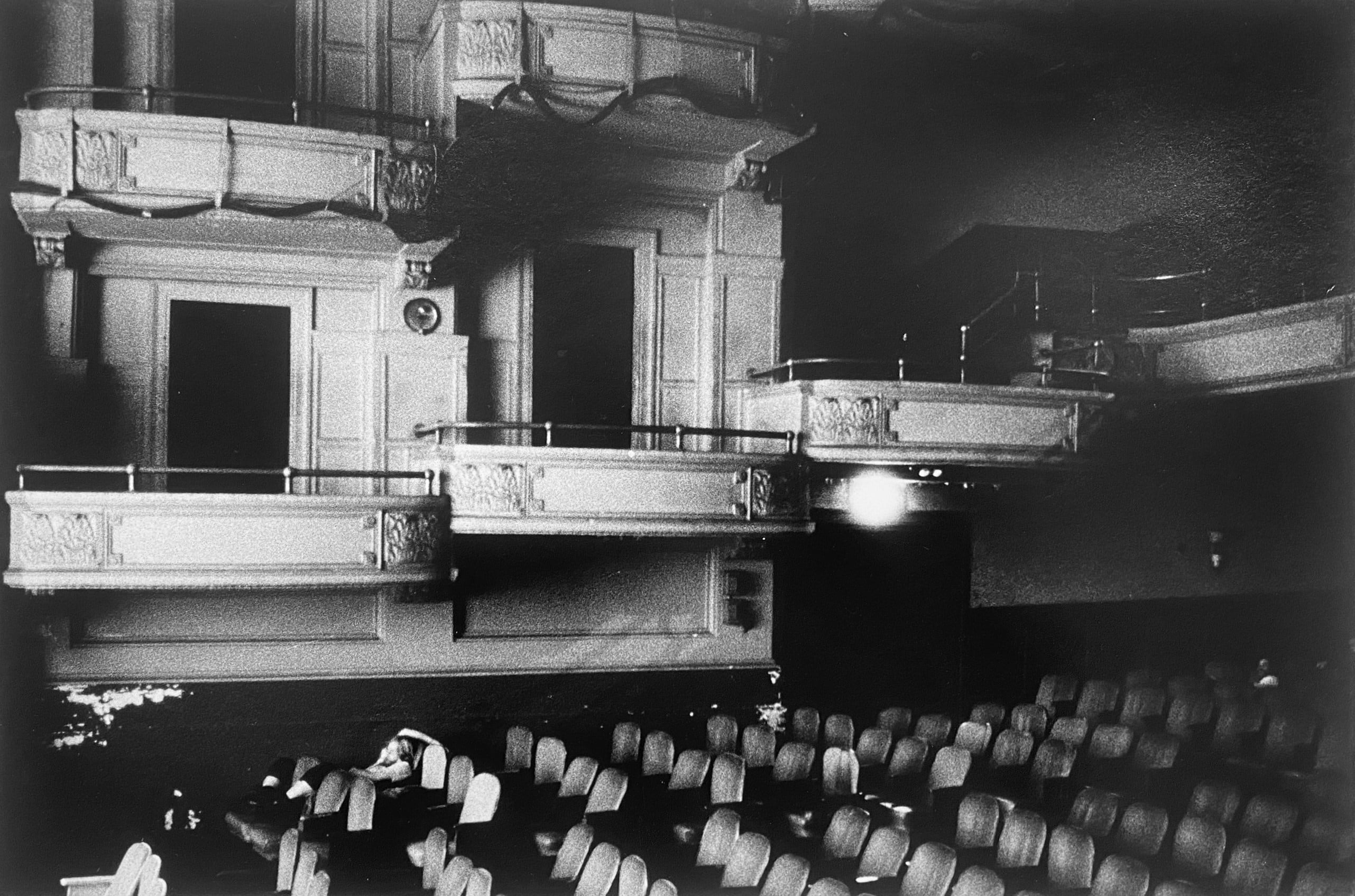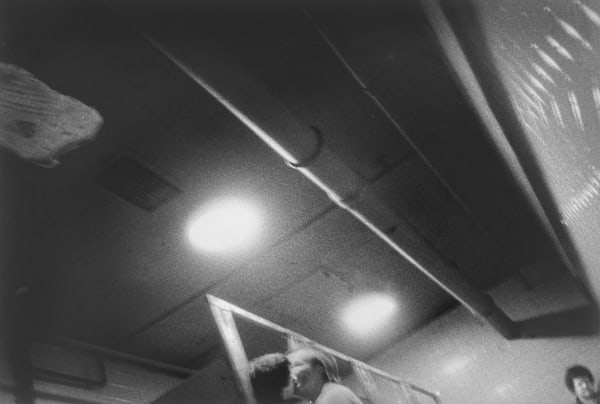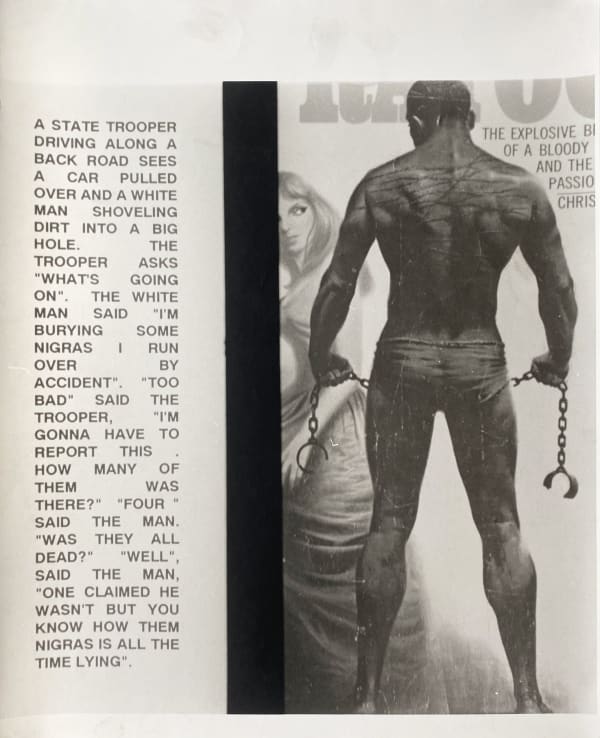-
-
Christian Walker (American, b. 1953 Springfield, MA – d. 2003 Seattle, WA) was a groundbreaking Black gay photographer active in Boston and Atlanta from the mid-1970s to the mid-1990s. His photographs, critical writings, and curatorial projects are vital contributions to the histories of art and photography of the 20th century. In 1974, Walker moved to Boston where he spent the next ten years residing primarily in the South End. After graduating from the School of Fine Arts, Boston, MA in 1983, he participated in several Boston-area solo and group exhibitions and wrote art criticism for gay publications Fag Rag, Amethyst, and SF Camerawork Quarterly. His early photography was influenced by activism within his own community, first via documentary photography and portraiture which eventually led to his acclaimed series The Theater Project which was first exhibited at C.A.G.E. Gallery, Boston in 1983.
In 1985, Walker relocated to Atlanta after being offered a residency at Nexus Contemporary Art Center, Atlanta, GA to publish an artist book of The Theater Project images. His work transitioned to include creative photographic techniques such as multiple exposures, archival appropriation, and integration of paint and nontraditional materials. During his Atlanta years, the artist was included in numerous important group exhibitions, including Black Photographers Bear Witness: One Hundred Years of Social Protest curated by Deborah Willis (1989); The Subject is AIDS (1989) one of the first exhibitions to focus on AIDS crisis and art; a two-person exhibition with Carrie Mae Weems on occasion of the National Black Arts Festival in Atlanta (1992), and Black Male: Representations of Masculinity in Contemporary American Art curated by Thelma Golden at the Whitney Museum (1994), among many others. Jackson Fine Art represented Walker’s photographer during this time and his series Mule Tales was featured in a solo exhibition in 1992. Walker received several grants for his projects in the mid-1980s and early 1990s, including a Visual Arts Fellowship for Photography from the NEA (National Endowment of the Arts) in 1990. He was also a prolific writer with his criticism and photography published in Atlanta Journal-Constitution and Art Papers, including interviews with Andres Serrano (1991) and Mary Ellen Mark (1992).
In the mid-1990s Walker relocated to Seattle and little is known about his work and life during that period until his untimely death in 2003. Despite receiving substantial critical and curatorial acclaim during his lifetime, Walker's work had largely remained unrecognized until curators Noam Parness and Jackson Davidow created a comprehensive exploration of Walker's oeuvre in Christian Walker: The Profane and the Poignant. The exhibition debuted at the Leslie-Lohman Museum, New York, NY (2023) and traveled to Walker’s alma mater, Tufts University Gallery at the School of the Museum of Fine Arts, Boston, MA (2024) and is slated to travel to Atlanta Contemporary Art Center in early 2025.
Jackson Fine Art represented Walker in the 1990s, placed his work in prominent local collections, and featured his Mule Tales series in a solo exhibition in 1992. Unfortunately, little is known about Walker’s later years and no negatives of his work have been found. The works in this presentation come from a private collection in Atlanta acquired directly from the artist. Although we are dismayed the artist is not alive to see the brilliant renewal of interest in his work, Jackson Fine Art is delighted to organize Walker’s Paris Photo premiere some thirty years after his first exhibition with our gallery.
Walker’s work is included in the collections of The Center for Creative Photography, Tucson, AZ; Dallas Museum of Art, Dallas, TX; Hammonds House Museum, Atlanta, GA; High Museum of Art, Atlanta, GA; Museum of Contemporary Art, Georgia, Atlanta, GA; Museum of Fine Arts, Houston, TX; National Gallery of Art, Washington, DC; Schomburg Center for Research in Black Culture, New York, NY; and The Studio Museum in Harlem, New York, NY.
-
It is the artists committed to the radical restructuring of subjectivity who are pioneering the visual imaging of future culture. - Christian Walker, 1991
-
EARLY WORK
Christian Walker’s earliest photographs are portraits of his family, members of Boston’s gay community, and residents at the group home for people with mental disabilities where he worked. These early works were heavily influenced by the photographs of Diane Arbus.
-
-
The Theater Project
1983 - 1984During Christian Walker’s time at SMFA he took courses in photography, film, and drawing in the early 80s. Even though Walker had been photographing in Boston since he first moved, it was during his last semester at SMFA that he started his first major series, The Theater Project, about a nighttime community of the Pilgrim Theater, an X-rated theater in Boston’s redlight district. An area known as the “Combat Zone.” The Pilgrim Theater screened straight pornography but attracted an overwhelmingly gay audience and provided a space for those searching for homosexual encounters, whether openly gay or those who were closeted. The photographs capture an impressionistic journey: from beneath the marquee and through foyers, across a sprawling orchestra pit, past brass-railed balconies and loges, to connecting stairways and downstairs urinals. Sparsely scattered throughout the venue, ghostly figures of men and trans feminine individuals of various races linger—intoxicated, hopeful, disillusioned—seeking sex, connection, and sustenance. The series was first exhibited at C.A.G.E. Gallery in 1983 and published by Nexus Press in 1985.
-

Christian Walker
The Theater Project, 1983-1984
Signed, titled, and dated with annotations in pencil verso; Accompanied by a signed letter of provenance
Silver gelatin print
Image: 8 11/16 x 13 3/8 inches
Paper: 11 x 14 inches
$7,375 framed
-
-
Performance Counts
In 1984 or 1985, Walker made the move to Atlanta, drawn by his soon to be boyfriend Ron Renz and the prospect of publishing The Theater Project as a book. Walker soon became involved in the artistic communities of Nexus and began to experiment by appropriating imagery and text and applying dry pigments or varnish. He also wrote prolifically for the Atlanta Journal-Constitution and Art Papers, continuing the political and social critique he had begun in Boston.
Performance Counts can be viewed as an extension of Walker's street photography in Boston's Combat Zone. He observed the dynamics between black and white individuals in downtown Atlanta, especially in the Five Points district. Glenn Harper, editor of Art Papers, remarked on this series, stating, "Some striking images in the collection separate a Black individual from a white counterpart on the same street, highlighting the disparity in their worlds through distance, composition, and applied pigments."
-
Mule Tales
Walker's series Mule Tales developed from his enduring fascination with racial humor in white popular culture. The prints are divided into two sections, separated either horizontally or vertically by a black line. One section showcases a silver gelatin print of a rephotographed provocative pulp novel cover from the 1960s, while the other presents racial jokes sourced from historical materials. He found that minorities did not have jokes in the dominant culture and after research found a book called Negro Jokes For Intelligent White People from 1963 and a book called Mule Tales In Its Relation to Dixie Darkies from 1942. He coupled these texts with images from lurid paperbacks that depict violence or sexuality. Due to the layers of pigment and varnish covering each piece, deciphering both the image and text can be challenging to comprehend their juxtaposition outside of their original context.
-

Christian Walker
Mule Tales, 1990-1995
Signed, titled, and dated with annotations in pencil verso; Accompanied by a signed letter of provenance
Silver gelatin print with varnish overlay and text
15 1/8 x 19 7/8 inches
$8,250 framed
-
























